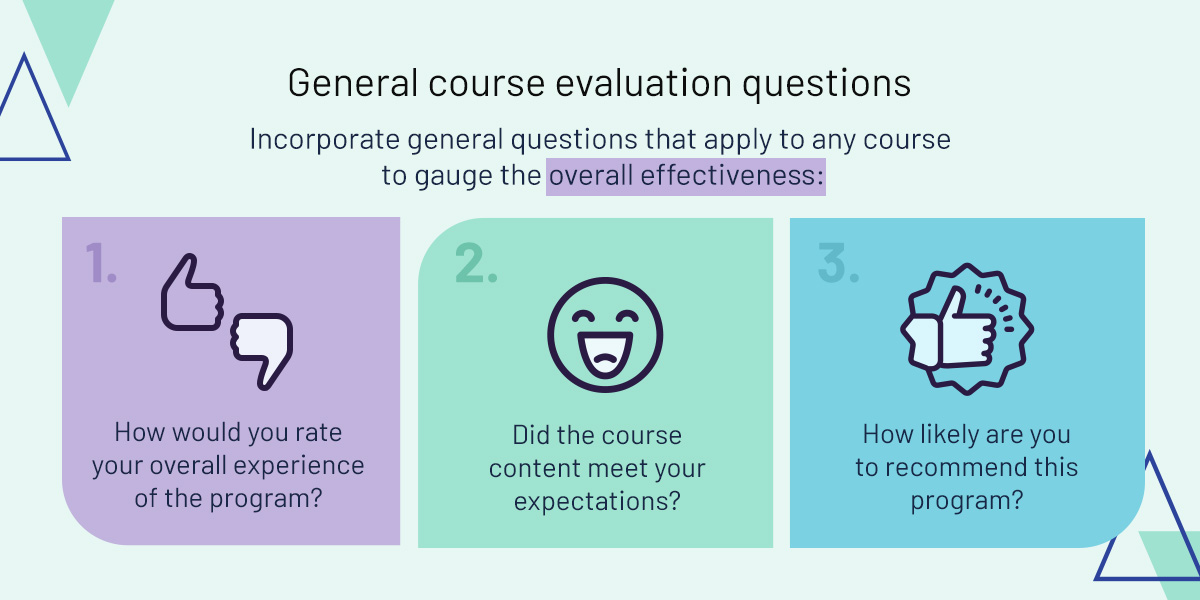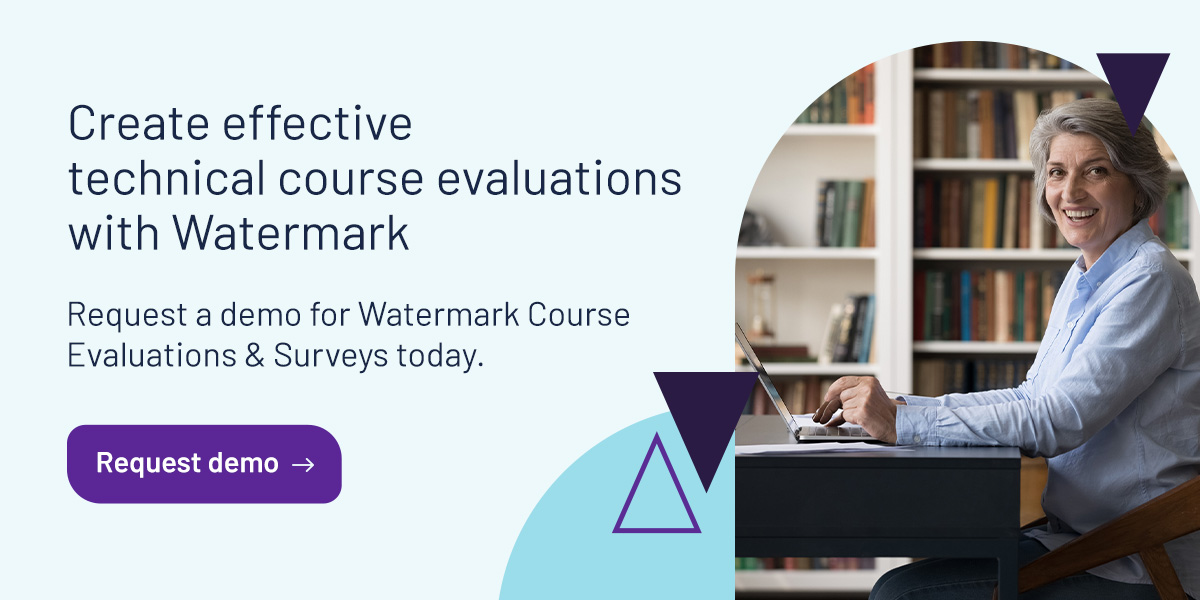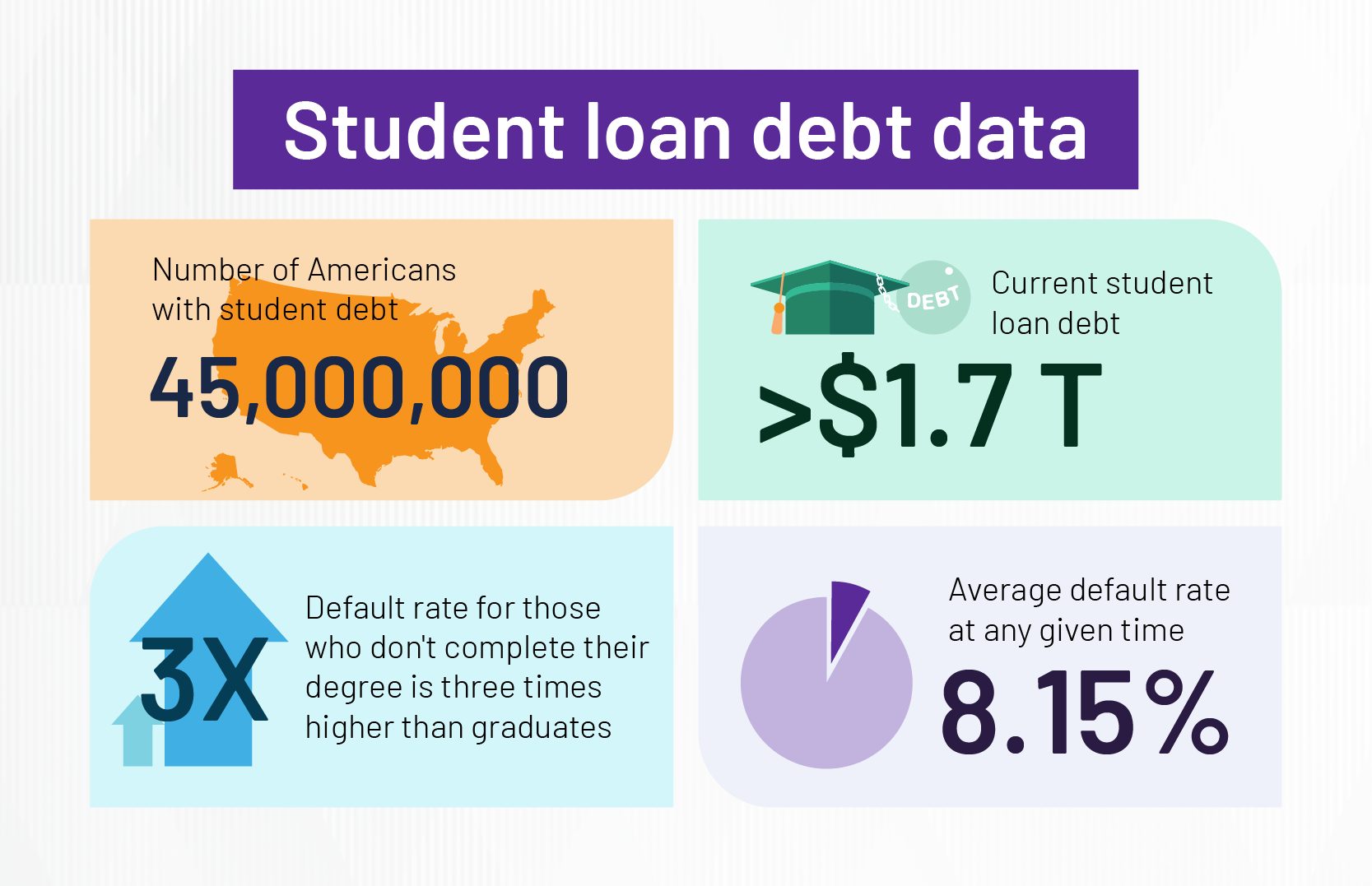
Industrial education focuses on preparing students for careers in technical and vocational fields. This type of education emphasizes hands-on training, practical skills, and knowledge related to specific trades like manufacturing, construction, automotive technology, and information technology. The goal of a technical program is to equip students with the competencies needed to succeed in the workforce.
Creating effective course evaluations for technical programs is essential for improving education and ensuring students are job-ready. These evaluations help gather feedback from students about their learning experiences, focusing on practical skills and industry relevance.
Understand the trade-specific context of course evaluation
When it comes to higher education planning for technical programs, it’s essential to focus on the unique skills and knowledge required for different trades. Unlike traditional academic courses, trade programs emphasize hands-on training and practical skills that students need for their future jobs.
Consider these key aspects to prepare students for their trades.
1. Evaluate skills mastery with knowledge
In trade programs, it’s essential to shift the focus from traditional academic metrics to assessing how students demonstrate competence in specific skills. For example, instead of asking students in a welding program to describe the theory behind welding techniques, include a practical assessment where students demonstrate their ability to perform specific welding tasks, like creating a strong joint in a metal piece.
2. Align with industry standards and certifications
Course evaluations should assess how well students are prepared for specific industry certifications and licensing exams. Involving industry professionals in the review and validation of evaluation questions can help create assessments that reflect current job requirements and standards.
3. Assess the effectiveness of hands-on training
Evaluations should go beyond simple satisfaction surveys to evaluate the quality and relevance of practical exercises, simulations, and equipment. For instance, evaluations for an automotive technology program could assess the quality of their exercises by asking students to rate the relevance and functionality of the equipment used during training.
4. Capture feedback on instructor expertise and industry experience
Evaluating instructors is also vital. Their ability to translate industry knowledge and best practices to students ensures the training is relevant and up to date. Are they familiar with evolving technologies, or do they know different techniques for certain tasks?
5. Address the needs of a diverse and experienced student body
Trade students often come with prior work experience and different learning styles compared to traditional college students. These students can provide feedback that will help tailor the program to their needs, benefiting other students with limited or no experience.
6. Practice the application of training
For training to be effective, it should be actionable and practical. Evaluations should assess whether the training provided students with practical uses for the program and ideas on how to implement their knowledge in the workplace. Gathering survey data from participants can help you understand if they felt equipped to apply what they learned.
7. Consider factors beyond learning objectives
While learning outcomes are important, higher education institutions must also measure other factors during assessment periods to remain competitive. This includes evaluating technical programs, postgraduate opportunities, student-professor ratios, and overall faculty support.
Design trade course evaluation questions
Next, design evaluation questions that will help gather feedback from students about their learning experience in technical programs. Use terminology that is familiar to students in the trade and avoid academic jargon.
At the beginning of the evaluation, explain its purpose to students. Then, use a mix of question formats — like short answers, responses to open-ended questions, and rating scales — to gather diverse feedback. This approach accommodates different student preferences and provides richer data.
Follow these tips for designing the right question formats for trade programs.
1. General course evaluation questions

Incorporate general questions that apply to any course to gauge the overall effectiveness:
- How would you rate your overall experience of the program?
- Did the course content meet your expectations?
- How likely are you to recommend this program to a peer interested in this trade?
2. Questions related to skill development
Assess how well the course has improved practical skills. Example questions include:
- To what extent did this course improve your ability to perform tasks related to this trade?
- How well did the hands-on exercises prepare you for a real-world job scenario?
- Did the program improve your understanding of specific techniques or processes used in the trade?
3. Industry relevance and certification preparation
Ensure that evaluations measure how well the course aligns with industry standards and prepares students for certifications:
- How well did the course content prepare you for your exam?
- Did the course provide you with the skills and knowledge needed to succeed in your role?
4. Effectiveness of hands-on activities and equipment
Assess the quality of hands-on training and the tools used. Some questions include:
- How would you rate the quality and availability of the equipment used in this course?
- Were the practical exercises realistic and relevant to real-world scenarios you will encounter in the industry?
- How effective were the simulations in helping you understand the practical applications of the course material?
5. Feedback on instructor expertise and guidance
Evaluate the instructor’s ability to teach and support students effectively:
- How knowledgeable was the instructor about current trends and technologies in the trade?
- Did the instructor provide clear expectations and examples during hands-on activities?
- How approachable was the instructor when you had questions or needed assistance?
6. Measuring student commitment
Include questions that assess student engagement and commitment to the program, such as:
- How many classes or sessions did you attend?
- How would you describe the level of effort you put into this course?
- How many hours per week did you dedicate to studying and completing assignments for this program?
7. Performance-based questions
Craft questions that assess how well students can apply their new skills:
- Do you feel you can apply what you’ve learned on the job?
- Identify a specific work situation where you will apply what you’ve learned.
- What steps will you take to implement the techniques learned in this course in your professional practice?
8. Questions about support services
You can ask various questions related to the Free Application for Federal Student Aid (FAFSA) and other methods of financial aid:
- How did the FAFSA reform impact your ability to access financial aid compared to previous years?
- How would you rate your overall experience with the financial aid process at this institution?
Implement and manage course evaluation design in trade schools
Implementing and managing course evaluation design involves several key steps to ensure the process is effective, accessible, and beneficial for both students and faculty. Use this approach for course evaluation success:
- Choose appropriate delivery methods: Use evaluation methods that are accessible to all students, including those with disabilities. An online survey platform allows students to complete evaluations at their own pace from any location.
- Provide incentives for participation: Consider offering small incentives to encourage students to complete evaluations. Ensure that any incentives offered do not compromise student response anonymity.
- Share results and action plans: Share the results or evaluations with faculty and students, and outline specific action plans based on the feedback received.
Use evaluation tools for technical education feedback
Using program assessment tools can enhance program quality and ensure students are well-prepared for their careers. These evaluation tools can benefit your institution through:
- Customizable survey templates: Adapt and tailor existing templates to include questions specific to trade skills and industry standards without having to build your own.
- Automated data collecting and reporting: Automate data collection to reduce the administrative burden on faculty and staff. These automated systems can distribute surveys, collect responses, and compile data without requiring manual input.
- Trend tracking: Regularly use evaluation tools to track changes in student feedback over multiple semesters or academic years.
Create effective technical course evaluations with Watermark
Relevant and actionable course evaluations are crucial for trade program success. Whether you need software for data collection or an enrollment management strategy, Watermark offers the tools and software to create, distribute, and analyze evaluations for any course.
Request a demo for Watermark Course Evaluations & Surveys today.

Linked Sources:
- https://www.insidehighered.com/news/student-success/academic-life/2025/04/10/college-completion-growth-spurred-certificates
- https://www.watermarkinsights.com/solutions/student-learning-and-licensure/
- https://www.watermarkinsights.com/resources/blog/technology-essential-institution-faculty-student-success/
- https://www.watermarkinsights.com/solutions/student-success/
- https://www.watermarkinsights.com/solutions/assessment-projects/
- https://www.maine.edu/student-success/retention-and-student-success-best-practices-and-successful-initiatives/
- https://www.educause.edu/ecar/research-publications/student-technology-report-supporting-the-whole-student/2020/student-success
- https://www.watermarkinsights.com/resources/blog/optimize-instructional-capacity/
- https://www.watermarkinsights.com/resources/blog/strategic-enrollment-management-sustainable-enrollment/
- https://www.watermarkinsights.com/solutions/student-learning-and-licensure/
- https://www.watermarkinsights.com/resources/blog/tracking-progress-with-student-learning-licensure/
- https://www.watermarkinsights.com/request-demo/














































































































































































































































































































































































































